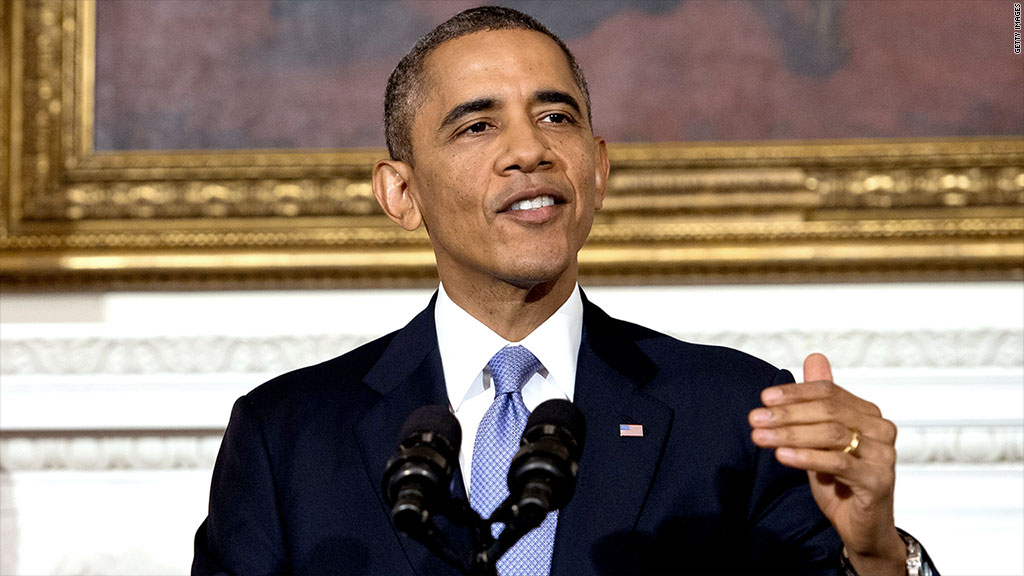
The official nonpartisan take on President Obama's 2015 budget proposal is in: He would curb deficits even more than today's policies.
Of course, the budget wheels for next year are already in motion in Congress, making the president's budget, in effect, a dead letter. It is, however, his wish list for taxes and spending.
The Congressional Budget Office on Thursday said Obama's budget would reduce annual deficits by about $1 trillion more than CBO projects over the next 10 years.
It would do so by raising about $1.4 trillion more in revenue, while also raising noninterest spending by $446 billion, the CBO noted in its analysis.
The net effect: The country's accumulated debt, currently about 74% of the size of the economy, would grow in dollar terms but still remain at 74% of GDP by 2024.
Here are some of Obama's proposals with the biggest effects on the federal budget:
Limit tax breaks for high income households: The biggest revenue raiser is Obama's proposal to limit the value of itemized deductions, as well as certain tax exclusions, to 28% of the amount claimed.
Related: Obama's budget: Help for workers, taxes for the rich
The plan, estimated to raise $498 billion over a decade, would hit mostly individuals who make more than $200,000 and married couples who bring in more than $250,000.
Immigration reform: The president called for comprehensive immigration reform, a proposal broadly similar to a bill the Senate passed last year. CBO estimated that legislation would raise $456 billion in new revenue and raise spending by $298 billion.
Related: CBO projections: Deficit now expected to be even lower
The rise in legal immigrants and the U.S. population overall would increase spending on refundable tax credits, Medicaid and health insurance subsidies, among other federal benefits. And it would increase spending for the implementation and enforcement of the bill's provisions.
But it would also create even more tax revenue by way of income and payroll taxes, the agency had noted.
Less overseas military funding: The president wants to spend $659 billion less on overseas contingency operations, such as those in Afghanistan, than would occur under current policies.
Raise other spending caps: Obama would eliminate automatic spending reductions scheduled to take place between 2016 and 2021, and raise spending caps through 2021 for most discretionary programs. But he would also keep those caps in place through 2024.
On net, these proposals would increase spending by $433 billion (or 4%) over the next decade.


